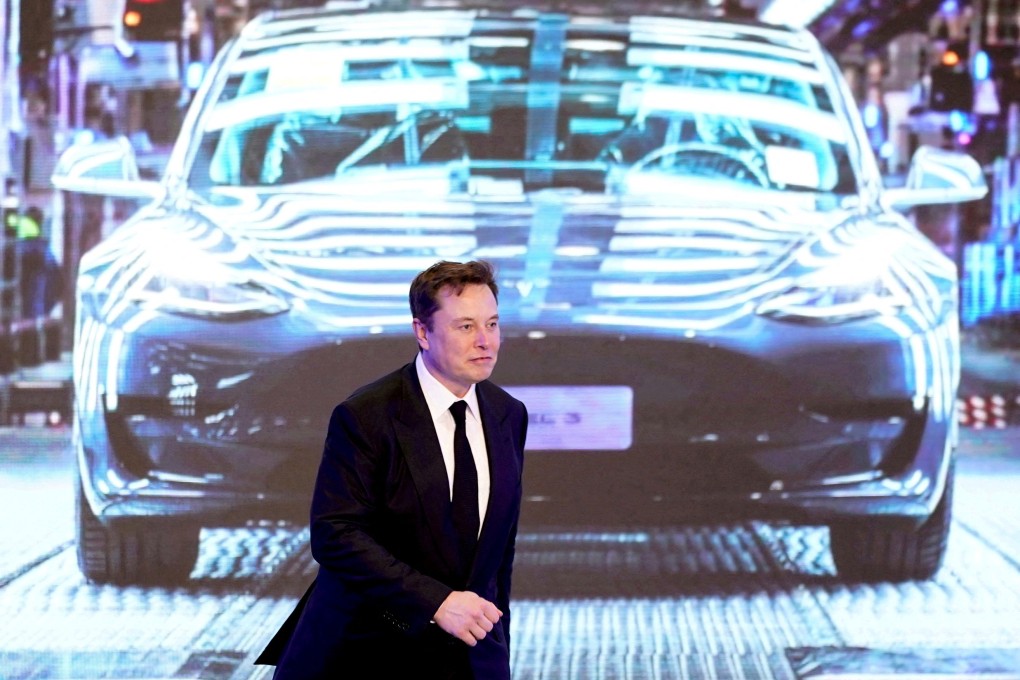Advertisement
Year of the Tiger: Tesla’s lead in China’s EV market is whittled away by NIO, Xpeng, Li Auto and other home-grown brands
- The three most aggressive Chinese EV start-ups have a lot of catching up to do against Tesla
- Their combined 2021 sales of 280,075 unite left China’s top three EV start-ups with a 13 per cent gap with Tesla
Reading Time:3 minutes
Why you can trust SCMP
6

Tesla’s dominance in the world’s largest electric car market may come increasingly under pressure in the Year of the Tiger, as China’s home-grown brands develop new models to pick up the slack left by Elon Musk’s company.
Advertisement
To get there, NIO, Xpeng Motors and Li Auto – the three most aggressive local EV start-ups – will have to spend heavily to assemble and launch smart, all-electric vehicles amid the lingering shortage of semiconductor chips that may leave a 20 per cent shortfall in this year’s demand for so-called new energy vehicles (NEVs).
“They need to overcome some challenges to lure customers away from [Tesla’s] Model 3 and Model Y,” said Gao Shen, an independent analyst in Shanghai. “First, they should secure enough chips and components to ensure the smooth production of new cars. Second, they must spend a large sum of money to promote the new models, which can affect their earnings.”
They have a lot of catching up to do, as their combined sales of 280,075 electric cars in China still left them with a 13 per cent gap with Tesla, whose 2021 deliveries more than doubled to 321,000 units. Shanghai-based NIO’s 2021 deliveries rose 109 per cent to 91,429 units, while Guangzhou-based Xpeng tripled its sales to 98,155 vehicles and Beijing’s Li Auto reported a 177.4-per cent increase to 90.491 EVs.
“The gap is not expected to narrow in 2022,” said Peter Chen, an engineer with the auto-parts company ZF TRW in Shanghai. “It is still too early to jump to the conclusion that they will be China’s own Tesla, [even if] the trio have proved that they are major competitors in the smart EV segment.”
Advertisement

Advertisement